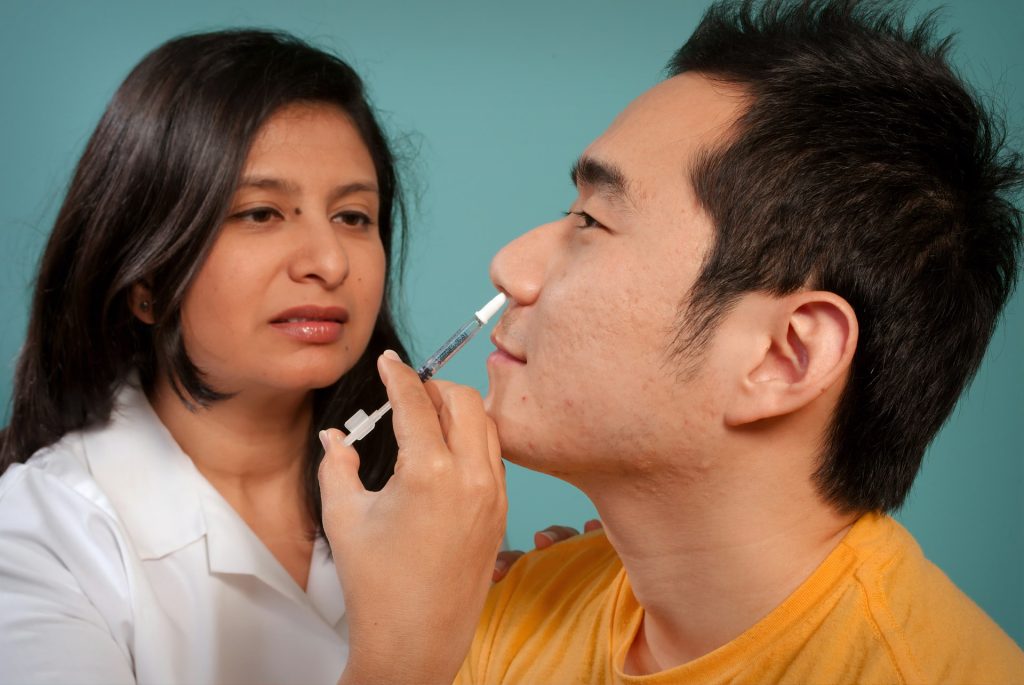Intranasal Administration of AstraZeneca Vaccine Reduces Viral Shedding

A multi-institutional team of researchers has found that administering the AstraZeneca COVID vaccine intranasally to infected hamsters and monkeys reduced viral loads in nasal swabs, suggesting reduced shedding.
The group describes the testing they conducted with COVID-infected animals and the possible implications of their work, in their paper published in the journal Science Translational Medicine.
Another COVID surge is occurring in a number of countries where vaccinations are readily available, likely due to the arrival of new variants and wide resistance to the vaccinations. Breakthrough infections have been reported in vaccinated individuals. These has resulted in renewed calls for mask-wearing, even in vaccinated individuals. This is because it is not yet clear if vaccinated people can infect other people, even if they have no symptoms. In this new effort, the researchers suggest that adding intranasal inoculation to vaccination efforts might help.
Currently, the vast majority of vaccines developed and in use are intramuscular, given via shots in the arm. Recently, a team at the University of Alabama noted that an intranasal administration of COVID vaccines would seem to make more sense, since COVID is a disease of the nose, throat and lungs. In this new study, the researchers have given an already existing COVID vaccine intranasally to test animals with COVID to see what would happen.
They found that intranasal administration of the AstraZeneca vaccine to infected hamsters and monkeys led to lowered viral loads on nasal swabs, indicating that intranasal administration reduces viral shedding and thereby transmissibility of the virus.
Unfortunately, prior research has also shown that vaccines given intranasally confer immunity for a shorter period of time than intramuscular vaccination. Thus, as the team in Alabama noted, the best approach might turn out to be a combination of a shot in the arm along with a puff of mist up the nose to confer both short-term and long-term protection.
Source: MedicalXpress
Journal information: Neeltje van Doremalen et al, Intranasal ChAdOx1 nCoV-19/AZD1222 vaccination reduces viral shedding after SARS-CoV-2 D614G challenge in preclinical models, Science Translational Medicine (2021). DOI: 10.1126/scitranslmed.abh0755

